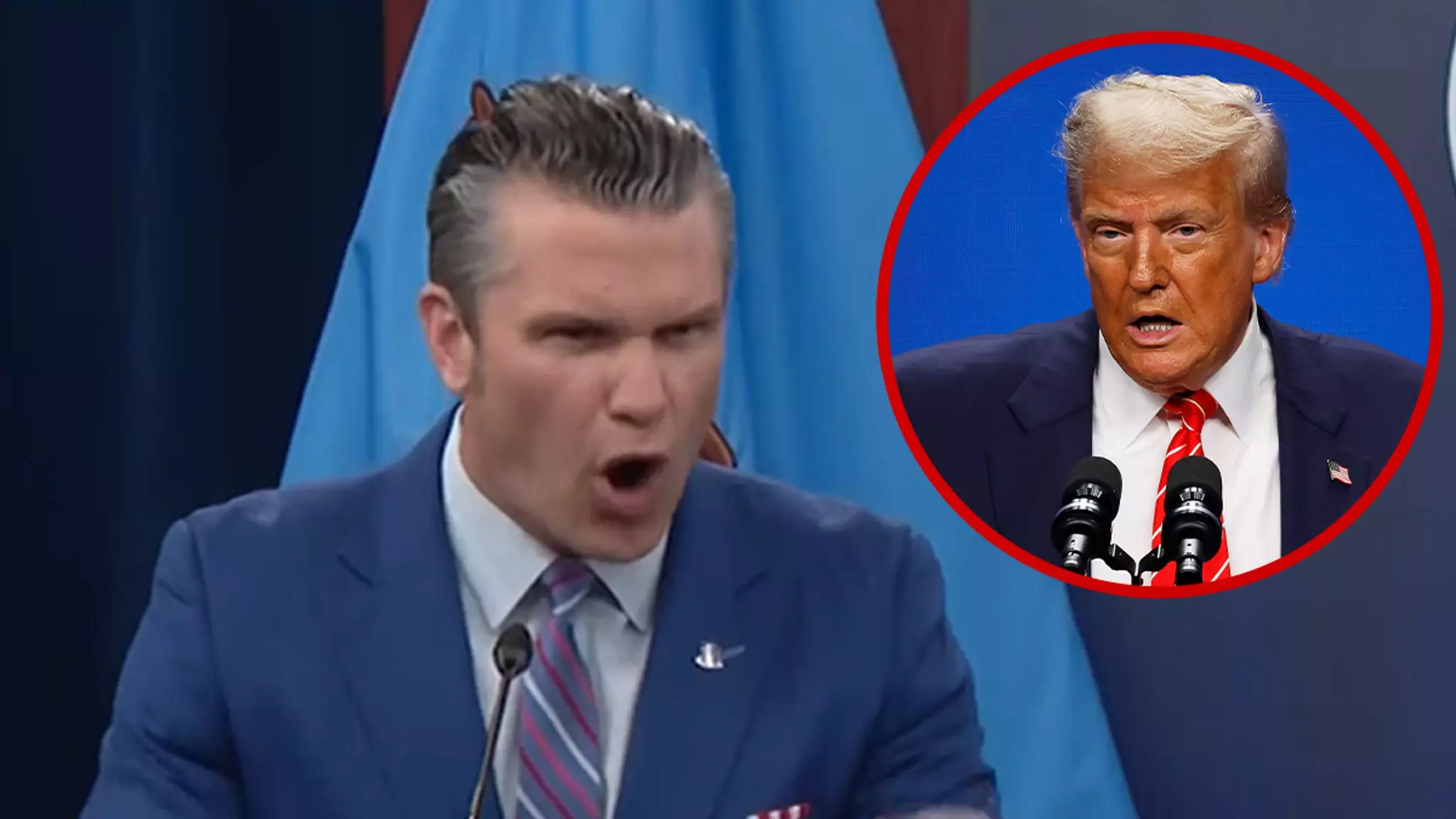The interaction between government officials and the media has always been fraught with tension, but few instances illustrate this dynamic as vividly as the recent confrontation involving Secretary of Defense Pete Hegseth. Following a military strike against Iran, Hegseth launched a fierce denunciation of the press corps, asserting that the media’s critical coverage was not only biased but also unpatriotic. Such a stance exemplifies a troubling trend in which the administration seeks to intimidate journalists and manipulate the narrative surrounding military actions.
Questioning the Narrative
Hegseth’s ardent defense of the military during this press briefing revolved around a leaked Pentagon report, which indicated that the strike had minimal impact on Iran’s nuclear ambitions. By framing the media’s scrutiny as a personal attack on the troops’ efforts, Hegseth deflected critical examination of the government’s decisions. His rhetoric signals an unsettling fusion of nationalism and militarism, wherein any critique of state actions against a foreign adversary is perceived as an affront to the men and women in uniform.
This approach not only undermines journalistic freedom but plays into the hands of uninformed patriotism. Individuals in positions of power often wield such emotional appeals to silence dissent. However, the question arises: is it un-American to hold a government accountable for its military actions, especially when the implications could be severe on a global stage?
Media as a Scapegoat
Hegseth’s portrayal of the media as a malevolent force seeking to undermine the Trump administration serves as a diversion from legitimate scrutiny. By suggesting that journalists relish in the president’s failures, he perpetuates a culture of victimization that hinders public understanding of vital policy decisions. This kind of scapegoating is detrimental; it fosters an environment where legitimate questions about military strategy and foreign relations become conflated with treachery.
The Secretary’s emphasis on promoting “positive” stories about the military also raises alarms. While it is crucial to recognize and honor the courage of soldiers, celebrating their actions should not preclude discussions about the consequences of military engagement. Striking a balance between admiration for the troops and accountability for military decisions is essential to ensure that the American public remains informed.
A Sexist Undertone?
The media’s coverage took an interesting turn when a journalist sought to highlight the contributions of female pilots during the briefing. Hegseth’s immediate dismissal of the question as indicative of a disdainful angle on military gender dynamics reinforces a stereotype that women’s roles are not to be highlighted in discussions about warfare. This reaction displays an underlying tendency to dismiss valid explorations of gender roles within the military context — a dimension that is both relevant to contemporary society and crucial for a holistic narrative of military success.
The Fallout
Ultimately, the chasm between the Trump administration and the media remains wide. Hegseth’s fiery rhetoric is unlikely to mend fences; instead, it fosters an environment of mistrust and skepticism. In an age where information is paramount to understanding the complexities of international relations and military engagements, it is essential for journalists to pursue the truth relentlessly, despite governmental pushback. Instead of quelling dissent, such interactions demand a deeper analysis of transparency and accountability within governmental institutions, affirming the media’s role as a crucial check on power.

